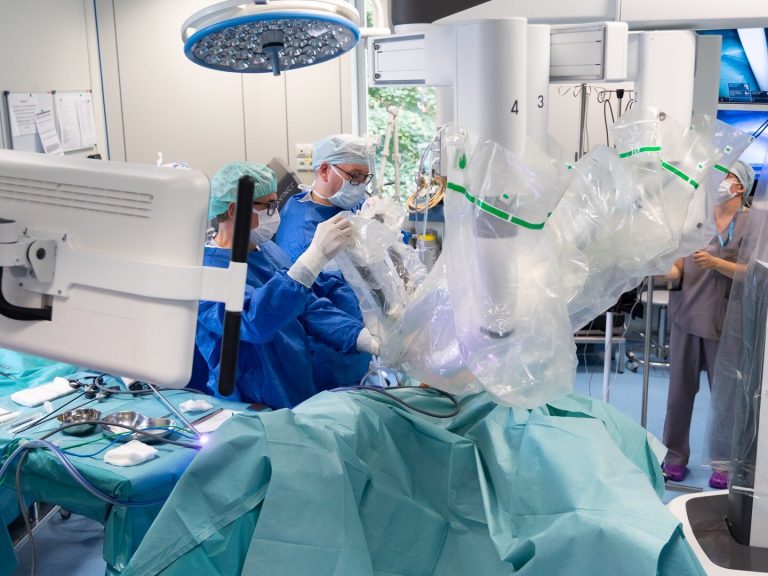Not only in vitro. A holistic approach to the treatment of fertility disorders

There are many causes of fertility disorders, and their background may be different. In most cases, the disorders affect both partners. It is estimated that approximately 1.5 million couples in Poland have problems with getting pregnant each year. Increasing access to in vitro treatment, which after an eight-year break is again financed from public funds, will be a solution for many of them. The response to the growing scale of the problem and the shifting age limit at which couples decide to have a child may also be a holistic approach to the treatment of fertility disorders, in line with contemporary trends.
“Yes to in vitro”, or the return of government support
The first edition of the government in vitro program, implemented in 2013-2016, enjoyed great interest from patients. During the three years of the program, approximately 17,000 people benefited from the refund. pairs, and over 22,000 were born. kids. For almost eight consecutive years, couples struggling with infertility could not count on government support. Local governments responded to their needs by launching local programs to subsidize in vitro procedures for their residents from their own budgets. From June 1, 2024, government support started again.
Government IVF program – check if you can benefit
The program “Yes to in vitro” announced by the Ministry of Health was designed to make it possible for as many couples as possible to benefit from it. Among the criteria that patients applying for reimbursement must meet, age is key. Women who can benefit from the procedure financing are:
The following may benefit from financing procedures:
-
women up to 42 years of age and men up to 55 years of age in the case of an in vitro procedure using your own cells or with sperm donation;
-
women up to 45 years of age and men up to 55 years of age in the case of an in vitro procedure involving the removal of an egg or embryo.
As part of government support, couples can benefit from financing for a total of 6 individual assisted reproduction procedures – up to 4 fertilization cycles using their own reproductive cells or with sperm donation, up to 2 fertilization cycles using donor oocytes and up to 6 cycles with embryo donation.
– In the previous edition of the program, couples used a maximum of three procedures, and the financing covered treatment using only their own gametes, so there was no solution for patients who did not have their own cells or their quality was not good enough. An important novelty is also meeting the needs of people struggling with cancer and including fertility protection procedures in the program. This is an important step because it sometimes happens that as a result of cancer therapies, reproductive abilities may be impaired – temporarily or permanently, and we know that young people who have not yet had time to implement their parental plans are also affected. – says Włodzimierz Sieg, MD, PhD, obstetrician-gynecologist and deputy head of the INVICTA Clinic in Gdańsk.
The oncofertility procedure, i.e. protection of fertility due to planned or ongoing oncological treatment that may impair reproductive capacity, can be used by women up to the age of 40 and men up to the age of 45.
– From the perspective of a doctor who has been specializing in the treatment of infertility for many years, I believe that including procedures in the program that include the removal of reproductive cells or an embryo, as well as offering patients the option of securing fertility in the event of disease, is a good approach. We know that couples are deciding to have children later and later. And the later the decision is made, the more difficult the efforts may be, because our fertility depends on age – adds Dr. Włodzimierz Sieg.
Late parenthood, poorer cell quality
According to data from the European statistical office Eurostat, the average age of first-time mothers is constantly rising. In 2021, women in the European Union who gave birth for the first time were on average 29.7 years old. In Poland, in 2022, it was 28.8 years old. The age limits at which we decide to have a child are shifting, the fertility rate is falling, and the need for assisted reproductive technology treatment seems to be increasing. Why is this?
– Biologically, the best age for a woman to get pregnant is between the ages of 20 and 30. This is the period of a woman’s greatest fertility. After the age of 30, the chance of conceiving a child is about 20%, and after the age of 35 it drops to about 12%. In addition to the woman’s age, the age of the future father is also important. In the case of men after the age of 35, the chance of impregnating a partner is about 25-28%, and after the age of 40 it drops to 6-8%. – says the deputy head of the INVICTA Clinic.
Women are born with a specific reproductive potential of the ovaries, i.e. with the so-called ovarian reserve. There is a lot of talk about the fact that a woman has a certain amount of time to get pregnant. Much less about the fact that time also matters for male fertility. In 1980, WHO for the first time undertook the standardization of semen analysis methods and developed reference values, i.e. the range within which the result of this test should fall. 44 years have passed, the manual has been amended five times, and the reference values for individual semen parameters have changed, based on new results of basic research as well as clinical and epidemiological studies. Most of them decreased significantly, showing how the level at which semen parameters can be considered normal has also decreased over the years. The deterioration of semen quality in the population as a whole is one thing. The second factor is age. There are studies that show a relationship between a man’s age and his semen parameters and fertility.
– Of course, a lot in the case of fertility – both women and men, depends on lifestyle, general health, or individual predispositions. With a proper body weight, regular physical activity, healthy nutrition, avoiding stimulants and stress, patients over 30 years of age can biologically have good quality cells – says Dr. Włodzimierz Sieg.
A Holistic Approach to Treating Fertility Disorders
Fast pace of life, stress, growing problem of obesity, do not help fertility. Postponing visit to infertility clinic for fear that treatment of assisted reproduction method will be the only possible solution can also be disastrous for patients. It is worth thinking about fertility and quality of your reproductive cells in advance, long before you start trying to get pregnant.
– It seems crucial to understand that fertility is influenced by many factors, and modern treatment should aim at comprehensive care, taking care of the parameters of reproductive cells and the condition of the body, so that despite the so-called late parenthood, be ready – physically and mentally, for the moment of conceiving a child – says Dorota Białobrzeska-Łukaszuk, founder of INVICTA Clinics and Laboratories.
In response to the idea of providing patients with holistic care in the area related to fertility and physical and mental well-being, the INVICTA European Family Center is being established in Sopot. NAMI, i.e. the stay and treatment part of ECR INVICTA, will soon be opened to patients.
– I want every NAMI guest to feel that they can be treated differently and individually, with full acceptance of their individuality, also in this medical area. I believe in the idea of care tailored to the individual, the one, the unique one. Our well-being, not only related to fertility, is influenced by many factors. Therefore, a holistic approach to the treatment of fertility disorders is the direction in which we should be heading. To take care of the patient holistically, regardless of whether the solution for them is in vitro treatment or other steps – adds Dorota Białobrzeska-Łukaszuk.
NAMI will be ready to welcome its first guests in August 2024. The facility’s offer will include, among others, treatment packages for people who would like to improve the quality of their health in the area related to fertility, people who need support in the urogynecological field, as well as those who, in the spirit of philosophy longevity—they would like to live a long life in good health.
European Family Center | INVICTA Clinic It is being created in connection with the implementation of a project co-financed by the European Union under Measure 2.1 Support for Investments in R&D Infrastructure of Enterprises Smart Growth Operational Program 2014-2020.






